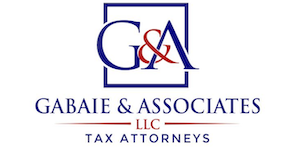Choosing the right legal structure for your new business is one of the first important decisions you will make as a business owner. Each structure has strengths and weaknesses, and you will need to choose the one that best fits your current resources and your future goals.
Maryland tax attorney Juda Gabaie of Gabaie & Associates, LLC, can advise you on the tax implications of each legal structure and handle the business formation process for you, allowing you to focus on your business, rather than the legal paperwork.
Sole Proprietorship
A sole proprietorship has a simple, informal structure. It is not a separate legal entity, so the business owner is personally responsible for all business debts. The business owner may freely mix personal and business assets without legal or tax repercussions.
If the business falls into financial trouble, creditors may file a lawsuit against the business owner. This means that the business owner carries a significant amount of personal liability. If the Court rules in the creditor's favor, the business owner must pay these debts with his or her personal money, or the creditor may attach liens to the business owner's personal assets.
If the business owner becomes incapacitated or dies, a sole proprietorship may not maintain its value.
When a sole proprietorship files taxes, income, losses, and expenses are reported on Schedule C, and the bottom line amount is reported on Form 1040, the business owner's personal tax return. If a business owner has income from other sources, business losses can offset this income, potentially placing the business owner in a lower tax bracket.
A sole proprietorship must also file Schedule SE with his or her personal tax return. This calculates the amount of self-employment tax that the business owner owes. If the business has employees, the business owner must pay unemployment tax on those employees, but not on him or herself.
Limited Liability Company (LLC)
A limited liability company (LLC) protects the business owner's personal property from business liabilities, and an LLC has simpler taxes than a C-Corp or an S-Corp. To establish an LLC, the business owner files Articles of Organization with the State of Maryland and creates an Operating Agreement, which specifies the rights and responsibilities of the members.
The business owners, called members, claim LLC income on their personal tax returns. An LLC can also elect to be taxed as a corporation by filing Form 8832, which allows the business to take advantage of a lower tax rate without restructuring. LLCs that choose this option must also pay a flat 8.25% of net income in taxes to the State of Maryland.
The State of Maryland requires an LLC to file a Personal Property Return (PPR) each year, and the fee to file this is $300. Maryland also requires an LLC to pay income tax on income allocable to nonresident members.
Partnership
For tax purposes, the IRS does not consider a partnership to be a separate business entity. Instead, any income or losses pass through to each partner's personal tax return, much like a sole proprietorship. Profits and losses are distributed according to the Partnership Agreement.
The partnership must file Form 1065 with the IRS, which the IRS reviews to determine if the partners are reporting their income correctly. Along with Form 1065, the partnership files Schedule K-1, which shows the IRS how business profits and losses are distributed among the partners.
Each partner pays his or her respective portion of taxes on their share of the business's annual profit, and this is taxed whether or not the partner actually receives the money. Each partner must also pay self-employment taxes.
C-Corp
A C Corporation is a separate legal entity, so it can enter into contract agreements or be the Respondent in a lawsuit. It can have an unlimited number of shareholders, and these shareholders have limited liability for the corporation's debts.
To form a C Corporation, business owners must file Articles of Incorporation with the State of Maryland, issue stock to initial shareholders, and create corporate bylaws.
C Corporations are subject to double taxation. The corporation pays income tax on its profits, and the shareholders pay income tax on their dividends.
C Corporations also have some tax benefits. The corporation can deduct 100 percent of employee health insurance premiums that it pays, and the corporation may implement a medical reimbursement plan that allows them to deduct medical expenses not covered by insurance.
S-Corp
Like a C Corporation, an S Corporation is a separate legal entity, so it can enter into contract agreements or be the Respondent in a lawsuit. The maximum number of shareholders is 100, and all shareholders must agree to the S Corporation election. An S Corporation may only issue one type of stock.
To form an S Corporation, your business needs Articles of Corporation and Corporate Bylaws. Your business must file Form 2553 with the IRS to gain S Corporation tax status.
S Corporations do not pay Federal income tax. Instead, the profit is allocated to the shareholders, who report it on their personal income tax returns. Shareholders do not have to pay self-employment tax, however, each owner who works in the business must be paid a reasonable salary with Medicare and Social Security taxes paid from that.
Maryland charges a corporation income tax, even if the corporation is inactive or does not have taxable income. The tax rate is 8.25 percent and it applies to Maryland modified income, which is the corporation's Federal taxable income adjusted by Maryland's modifications.
Contact an Experienced Maryland New Business Attorney
If you are ready to start a new business, contact experienced Maryland business attorney Juda Gabaie. New businesses have several legal structure options, each with unique legal and tax implications. We can advise you of the pros and cons of each legal structure and file the necessary paperwork so that you can focus on building your business. For a free consultation, contact us today online or at (443) 345-8291.
